Equipping ROSALIND, a cell-free biosensing platform, with information processing circuits based on toehold-mediated DNA strand displacement enhances sensor performance and enables logic gate computation.
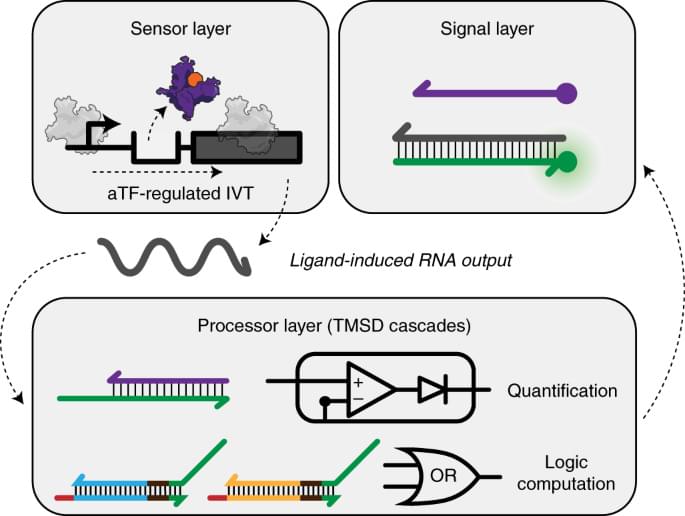

A revolutionary pacemaker that re-establishes the heart’s naturally irregular beat is set to be trialed in New Zealand heart patients this year, following successful animal trials.
“Currently, all pacemakers pace the heart metronomically, which means a very steady, even pace. But when you record heart rate in a healthy individual, you see it is constantly on the move,” says Professor Julian Paton, a lead researcher and director of Manaaki Manawa, the Centre for Heart Research at the University of Auckland.
Manaaki Manawa has led the research and the results have just been published in the leading journal Basic Research in Cardiology.
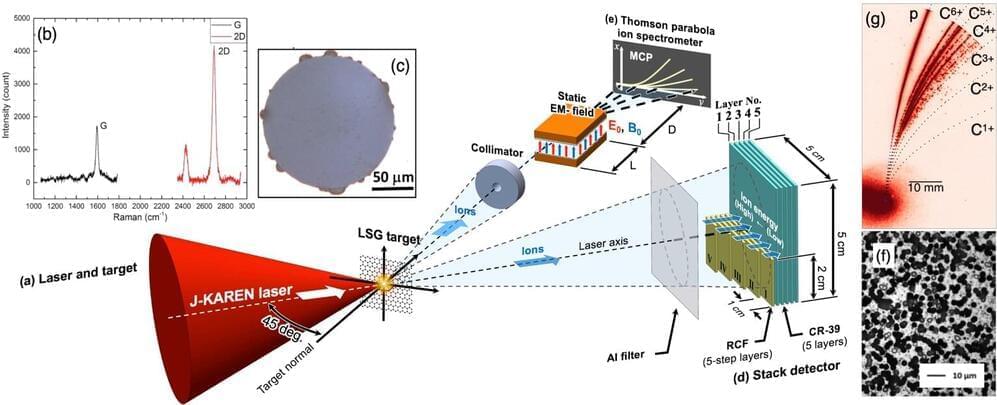
Laser-driven ion acceleration has been studied to develop a compact and efficient plasma-based accelerator, which is applicable to cancer therapy, nuclear fusion, and high energy physics. Osaka University researchers, in collaboration with researchers at National Institutes for Quantum Science and Technology (QST), Kobe University, and National Central University in Taiwan, have reported direct energetic ion acceleration by irradiating the world’s thinnest and strongest graphene target with the ultra-intense J-KAREN laser at Kansai Photon Science Institute, QST in Japan. Their findings are published in Nature’s Scientific Reports.
It is known that a thinner target is required for higher ion energy in laser ion acceleration theory. However, it has been difficult to directly accelerate ions with an extremely thin target regime since the noise components of an intense laser destroy the targets before the main peak of the laser pulse. It is necessary to use plasma mirrors, which remove the noise components, to realize efficient ion acceleration with an intense laser.
Thus, the researchers have developed large-area suspended graphene (LSG) as a target of laser ion acceleration. Graphene is known as the world’s thinnest and strongest 2D material, which is suitable for laser-driven ion sources.

Jared Isaacman — the billionaire CEO of payments processing company Shift 4 — is buying three more flights with SpaceX, the first of which is scheduled for this year and could put Isaacman and SpaceX on track to travel deeper into space than any human has traveled in a half century.
The first flight in the series of missions, which are being called “Polaris” after the North Star, is planned for late this year and will last up to five days and include a crew of Isaacman and three other people. It’s expected to travel out to the Van Allen radiation belt, which has an inner band that stretches from about 400 to 6,000 miles above Earth, in part to help the crew research how radiation in space affects the human body. Radiation remains a serious concern for spaceflights to the moon and Mars, as SpaceX says it aims to do, because they would require prolonged exposure to radiation, which can lead to an “increased risk of cancer and degenerative diseases” and other long-term impacts, according to NASA.
When asked on a press call Monday, Isaacman said the Gemini missions of the 20th century, which set altitude records at the time, are a guidepost for how high the first Polaris mission will travel. Gemini missions reached as high as about 850 miles — or about three times higher than where the International Space Station orbits. Isaacman declined to share a specific altitude for the flight.

Instead of relying on a fixed catalogue of available materials or undergoing trial-and-error attempts to come up with new ones, engineers can turn to algorithms running in supercomputers to design unique materials, based on a “materials genome,” with properties tailored to specific needs. Among the new classes of emerging materials are “transient” electronics and bioelectronics that portend applications and industries comparable to the scale that followed the advent of silicon-based electronics.
In each of the three technological spheres, we find the Cloud increasingly woven into the fabric of innovation. The Cloud itself is, synergistically, evolving and expanding from the advances in new materials and machines, creating a virtuous circle of self-amplifying progress. It is a unique feature of our emerging century that constitutes a catalyst for innovation and productivity, the likes of which the world has never seen.
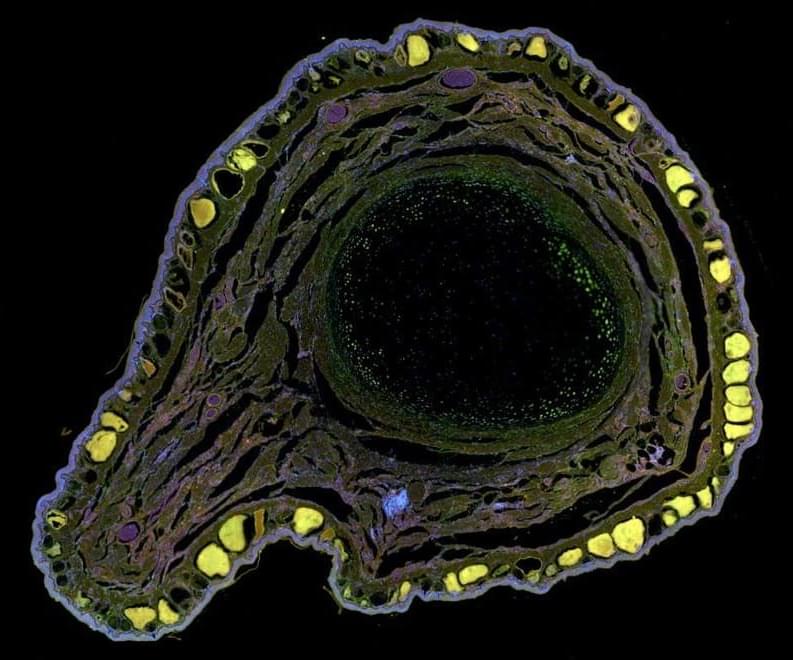
Adult frogs can’t usually regrow a lost leg, but they can after treatment with a regenerative cocktail — and the new leg even contains functioning nerves.
Adult frogs can gain the ability to regrow a lost leg if they are treated with a device containing a silk gel infused with five regenerative chemicals. The limbs the frogs grow can apparently move and sense as well as the original legs.
Although tadpoles and young froglets can regenerate hindlimbs, adult frogs, like humans, lack the capacity to regrow their legs.
“We were [looking for] a way to kickstart regeneration in an organism that normally can’t regenerate a limb,” says Nirosha Murugan at Algoma University in Ontario, Canada.
A patient with leukaemia in the US has become the first woman to be cured of HIV after receiving a stem cell transplant aje.io/nkfvf8
The new approach may make the treatment available to more people without the need for antiretroviral therapy.
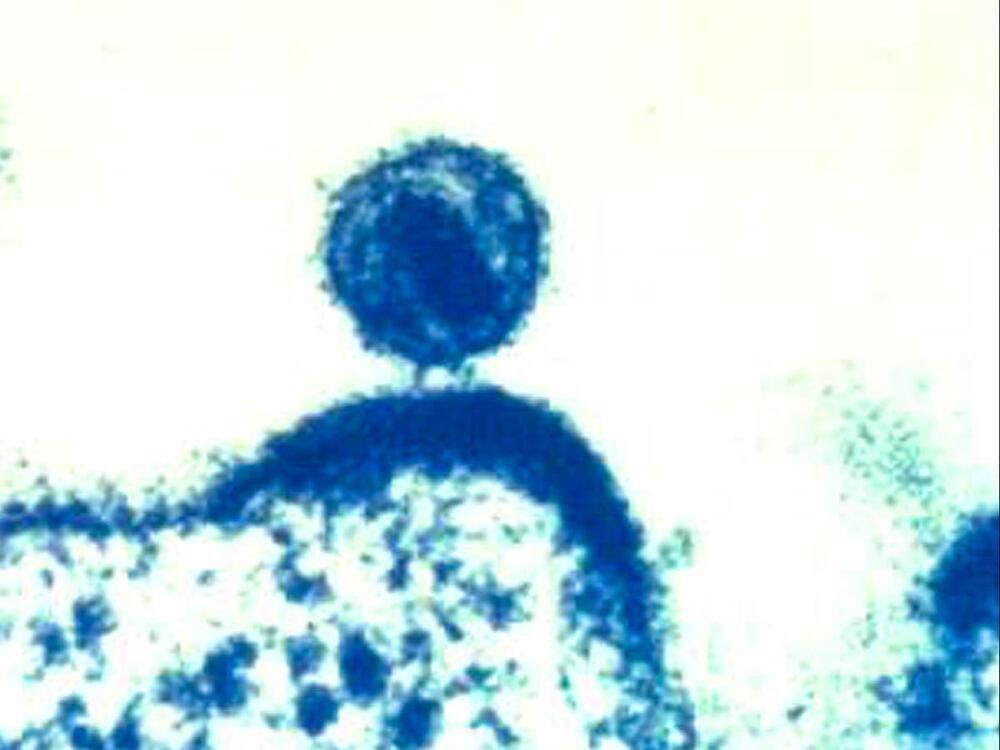
‘The fact that she’s mixed race, and that she’s a woman, that is really important scientifically and really important in terms of the community impact,’ doctor says.
The new findings were presented on Tuesday at the Conference on Retroviruses and Opportunistic Infections in Denver, Colorado.
University of California, San Francisco AIDS expert Dr Steven Deeks said that “the fact that she’s mixed race, and that she’s a woman, that is really important scientifically and really important in terms of the community impact,” The New York Times reported.
Women account for the majority of global HIV cases but only make up 11 per cent of participants in cure trials. The disease is thought to develop differently in men and women.
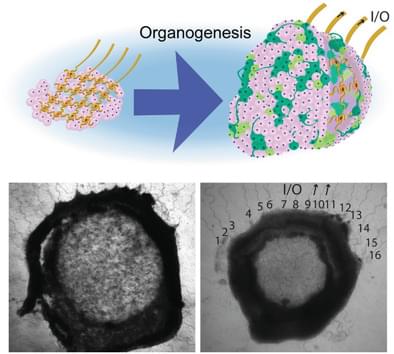
There is a cyborg organoid platform developed by integrating “tissue-like” stretchable mesh nanoelectronics with 2D stem cell sheets. Leveraging the 2D-to-3D reconfiguration during organoid development, 2D stem cell sheets fold and embed stretchable mesh nanoelectronics with electrodes throughout the entire 3D organoid. The embedded electronics can then enable continuous electrical recording.
Scientists design stretchable mesh nanoelectronics, mimicking the mechanical and structural properties of brain organoids to build cyborg human brain organoids.
Using the 3D embedded stretchable electrodes, achieved reliable long-term electrical recording of the same hiPSC-derived neural tissue at single-cell, millisecond spatiotemporal resolution for 6 months, revealing the evolution of the tissue-wide single-cell electrophysiology over hiPSC-derived neuron development. Applying this technology to brain organoids at early developmental stages, they traced the gradually emerging single-cell action potentials and network activities.
#biomimicry #meshelectronics #hiPSC #neurallace #neuroscience
Building cyborg brain organoids through the integration of stretchable mesh nanoelectronics with human induced pluripotent stem cell derived progenitors and neurons through organogenesis is reported…
Sometimes those working in the field of rejuvenation biotechnology face the accusation that what they are doing is just a fear of death, like not being scared of age-related diseases is somehow brave.
War used to be fashionable but now it isn’t
These days, war is not really portrayed in a very good light. When we think about war, we think about genocide, mass murder, and slaughter, and we call for an end to it. The popular sentiment is that war is bad and we should just do away with it.